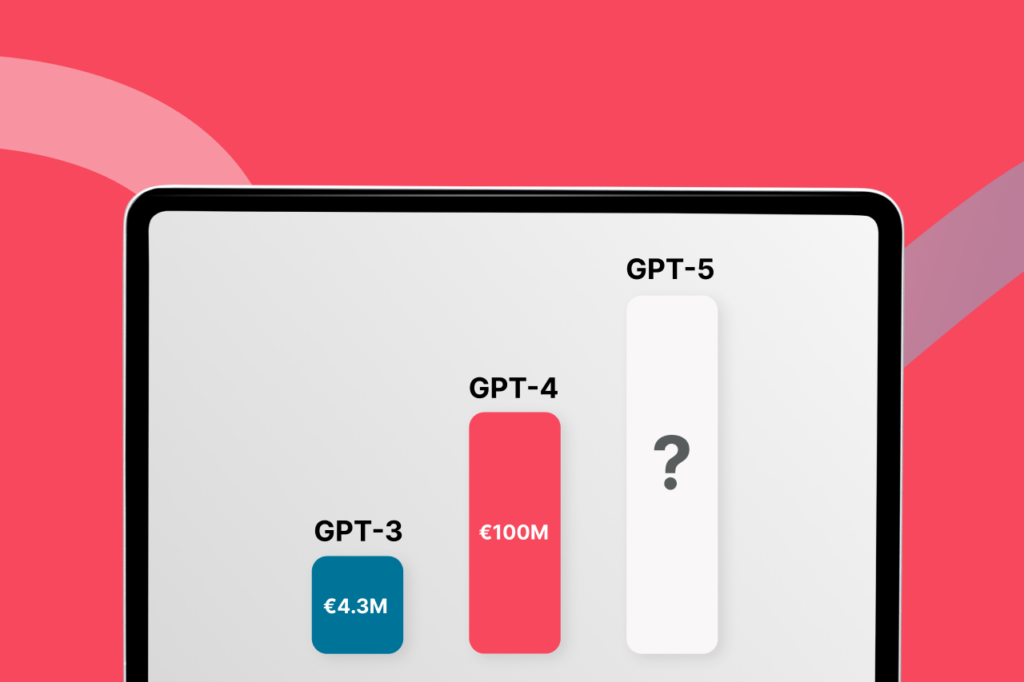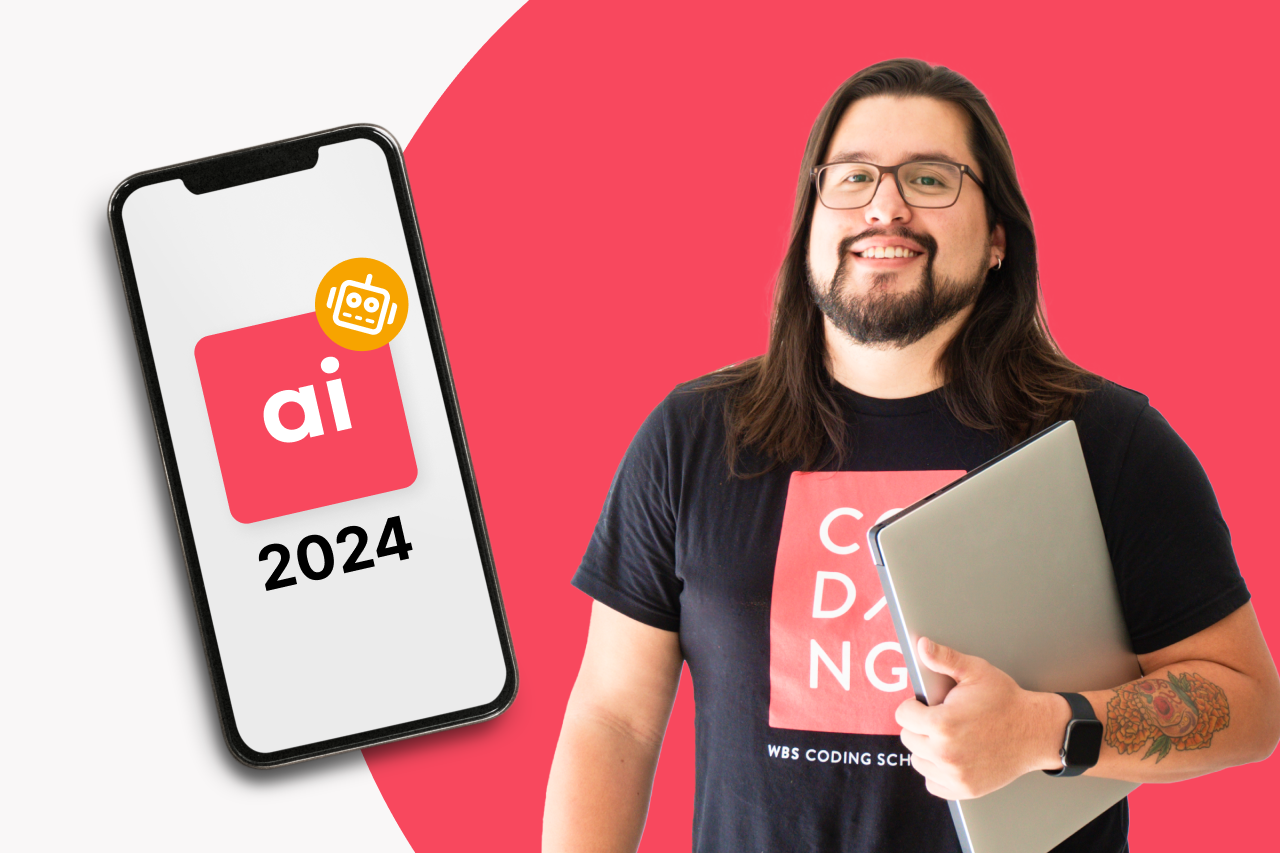Artificial intelligence has already transformed many industries, but none more so than the one that created it – the tech industry itself.
In this article, we will explore 4 ways that we expect AI developments to change the tech industry in the coming year. As with all revolutions, it will come with opportunities and challenges – which is why it’s a good idea to start thinking about future options now.
These are the topics that we will discuss in this article:
CONTENTS
- AI Engineering Will Shift Towards Low-Requirement Models
- Customisable AI Systems Will Come To The Fore
- A New Role: The Chatbot Engineer
- More Jobs, More Jobs And Then More Jobs

AI Engineering Will Shift Towards Low-Requirement Models
Firstly, let’s look at how the technology itself will change. The AI race has, so far, been mostly a matter of size: whichever company has the most processing power and the greatest amounts of data can develop the best AI.
There are signs that this is already coming to an end. As computing power inches closer to its technological limits, the costs of pushing it further rise exponentially: OpenAI’s GPT-3 cost €4.3 million to develop, while GPT-4 came with a bill of over €100 million. How much will development of GPT-5 cost?
As importantly, high-quality text for training is expected to run out as early as in 2026 (although new sources of data to mine may yet be found in the meantime). And OpenAI CEO Sam Altman himself said in April 2023, “I think we’re at the end of the era where it’s gonna be these giant models, and we’ll make them better in other ways.”
Finding – and perfecting – these ‘other ways’ could very well be one of the technological gold-rushes of 2024, for established companies as well as for researchers and startups.
Some options, such as trading less parameters in exchange for more data, making mathematical processes approximative rather than precise, or emerging techniques like LoRA (low-rank adaptation), have successfully been used in 2023 to create relatively low-requirement AI systems, like DeepMind’s Chinchilla or the University of Washington’s Guanaco.
As the cost of developing general-purpose AI models rises, these techniques will become increasingly profitable. AI engineers who can develop them will be in very high demand in 2024.
Customisable AI Systems Will Come To The Fore
As you probably know, most modern Large Language Models, like ChatGPT, are trained on the body of text of the entire internet.
But in November 2023, OpenAI announced the roll-out of GPTs, which are customisable versions of ChatGPT. This means that you can create a ‘mini-ChatGPT’ by training it with a body of text of your own selection.
The potential applications are immense. Companies will be able to train AI systems that know everything about their products, their internal and external policies, their brand guidelines, their HR rules, and much more.
In the field of tech specifically, this will certainly make the integration of AI systems into the coding process much smoother. Software developers (individually or in teams) will be able to train an LLM on their own projects, which means that any new code the AI writes will be perfectly consistent with the developer’s own work until then, even down to the style.
The applications of customisable AI systems are in fact so many, and so powerful, that we should expect OpenAI’s competitors to move in the same direction. Having your personal, personalised GPT assistant could well become the biggest innovation of 2024, both in the tech industry and outside of it.

A New Role: The Chatbot Engineer
Artificially intelligent chatbots are already widely used as customer service agents. In 2024, however, we should expect chatbots to ‘go forth and multiply’, and to take on many more forms than those we have seen so far.
Early developments in this direction emerged at the end of 2023. First, in September, Meta released a number of chatbots (in beta) that allowed users to interact with AI-voiced celebrities. Then, in November, Google was rumoured to be in talks to invest heavily in Character.ai, a startup whose chatbots simulate not only celebrities but also historical and fictional characters.
The most obvious applications are in the entertainment industry, of course. Celebrities can use avatars to reach more fans in more languages, franchises can let users inhabit the worlds they create, and videogames will be populated with characters capable of endless interaction.
Due to the substantial capital flow and the enormous popular reach of the entertainment industry, it seems likely that an entire sub-industry dedicated to chatbots will emerge. Developers and engineers who can create chatbots that convincingly sound like Napoleon, Elon Musk and Indiana Jones will be looking to earn some handsome salary figures. And rightly so – the task requires both technical skill and creativity.

More Jobs, More Jobs And Then More Jobs
Lately, established job platforms have been reporting some pretty wild numbers in relation to AI. Last July, for example, Upwork cited a 450% rise in job posts related to generative AI. In September, Randstad said that job postings seeking AI skills had surged by 2000%. In November, LinkedIn’s Future of Work Report claimed that “conversations around AI” went up by 70%.
We should expect these numbers to be contradictory and inconsistent at this stage, for the simple reason that the industry is still stabilising – as little as one year ago, many AI-related jobs didn’t even exist. All the same, these figures allow us to predict two changes.
One is an immense rise in the number of AI-related jobs in 2024. That’s consistent with current trends, and it also seems common sense. Many of these new roles won’t even be tech jobs strictly speaking, but simply upskilled versions of jobs in other departments – an “AI specialist” in customer service may simply be an operator trained in chatbot functionalities.
But in the field of tech, the new category of AI engineers are likely to become among the most sought-after in the industry, along with related specialisations, like machine learning engineers or NLP scientists.
These jobs will surely be among the hottest in the tech industry for 2024 (and beyond!), much like non-tech jobs that involve AI skills will become increasingly prominent in their own respective industries.
So Make The Most Of It!
This article, like any attempt to predict the future, is of course speculative. It’s entirely possible that our predictions will not come to pass, and that the great innovations in AI technology of 2024 will be something that surprises everyone.
What we do know is that this technology is changing the world very quickly (see our article on everything that happened in AI in 2023 if you want to know how!), and the tech industry is changing with it.
Knowing how to make the most of these changes could boost your career in ways you never even imagined. If you can see the curve, then you can get ahead of it.






